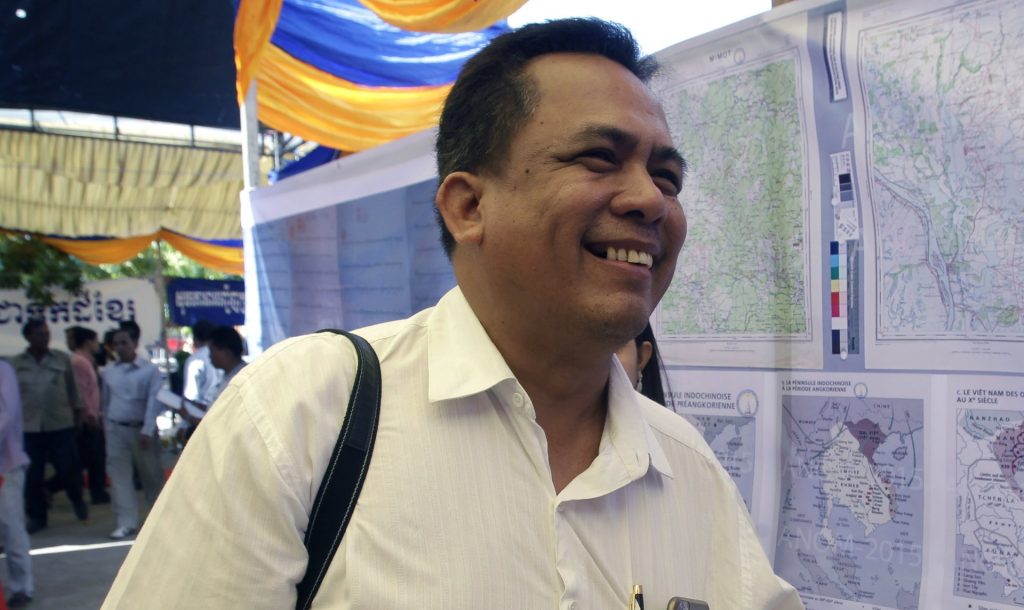The murder of Cambodian political activist Kem Ley raises sharp questions about freedom of expression and the silencing of opposition voices.
On Sunday popular Cambodian political analyst Kem Ley was shot dead at a petrol station in central Phnom Penh. The brazen assassination has shocked the nation, leading many to fear a return to the bloody politics of the past.
Kem Ley was an outspoken critic of both the ruling Cambodian People’s Party (CPP) and opposition Cambodian National Rescue Party (CNRP) — a rare independent voice in a highly partisan political environment.
A regular commentator on the state of politics in the Kingdom, Kem Ley also founded the grassroots political network “Khmer for Khmer”. His politics often spoke to Cambodia’s sizeable younger generation, and he regularly turned to social media to spread his message.
Shot twice from behind at a Caltex Petrol Station at around 8:30am, police were quick to apprehend the shooter: a man who identified himself by the pseudonym Choub Samlab, meaning “to meet and kill” in English.
In a “confession” released on popular Khmer-language breaking news site Fresh News soon after the shooting, the shooter admitted to the crime, saying he had bought the weapon in Thailand and shot Kem Ley over a debt of $3,000. Kem Ley’s family and friends have been quick to dispute the claim he had debts, and such a simple explanation for the death of an outspoken critic is hard for many to accept.
Mourners were quick to congregate at the petrol station, documenting the event with their smartphones and refusing to let authorities remove the body, perhaps drawing on their experience of state cover-ups in similar situations. Indeed, Cambodians are all too familiar with this type of political assassination. It seems now that Kem Ley’s name will be added to the list of martyrs also including unionist Chea Vichea and land activist Chut Wutty.
In 2004 Chea Vichea was gunned down outside Wat Lanka in central Phnom Penh while buying a newspaper. He had been an active unionist, encouraging collective bargaining and pushing for a higher minimum wage. Although two suspects were arrested at the time of his death, they have since been acquitted, and his real killers remain at large.
Chut Wutty was gunned down in 2012 while investigating illegal logging taking place in Prey Lang forest. It is alleged that the man who killed him was a military officer who also died in the incident. However, without a transparent investigation or trial, many questions remain. This year a film documenting the crime was banned from being screened in Cambodia.
State involvement in both men’s deaths has long been speculated, and a lack of proper investigation into either crime has only allowed such rumours to proliferate. How the government treats the investigation into Kem Ley’s death will be critical in determining whether he becomes another martyr or whether the population gets the answers they need.
If the killing of Kem Ley was politically motivated as many believe, there is no obvious reason for its timing. Kem Ley has been no more or less outspoken of late, although some news outlets have pointed to statements he made last week over a report released by Global Witness on the excessive wealth of Prime Minister Hun Sen and his family.
The Prime Minister condemned the attack on his personal Facebook page and expressed his sympathy for Kem Ley’s family. Statements have followed from diplomatic missions, Global Witness and the UN Special Rapporteur on the Rights to Freedom of Assembly, who labelled the death “suspicious” and raised the possible link to the Global Witness report.
Thousands of mourners walked with Kem Ley’s body to Wat Chas pagoda in Phnom Penh on Sunday afternoon. It will take time for the nation to recover from the shock of such a bold attack in broad daylight on a much-loved public figure.
For the CNRP leader currently in self-exile in France, Sam Rainsy, and his deputy holed up in their Phnom Penh headquarters, the message seems clear — Cambodia is not a safe place for dissenting voices.
Ana McKenzie is a pen name. The author is a consultant and writer based in Southeast Asia.
 Facebook
Facebook  Twitter
Twitter  Soundcloud
Soundcloud  Youtube
Youtube  Rss
Rss 